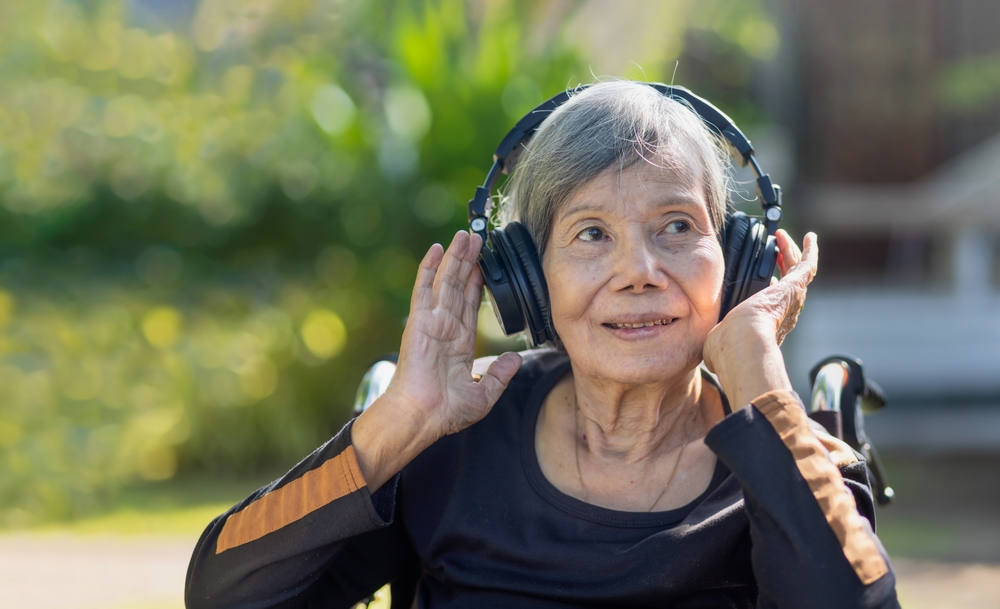Marta Cinta González Saldaa, a former exquisite ballerina, finds peace in the melodies of Tchaikovsky’s Swan Lake during the calm moments of her day. Despite the grasp of dementia, her hands follow the rhythm, and her spirit rises with the music for a brief moment. This touching moment, filmed in a viral video by the Spanish charity Música Para Despertar (Music to Awaken), demonstrates the incredible influence music can have in uncovering memories lost to dementia. Similar stories of people finding solace in music are unfolding around the world, showing the potential for music therapy to alter the lives of those living with Alzheimer’s and associated conditions.
The relationship between music and memory
Tony Bennett, the legendary singer who was diagnosed with Alzheimer’s in 2016, is a sad illustration of music’s powerful impact on memory. Bennett could be bewildered backstage, but, according to the performer’s wife, Susan, when his name was called, he would march onto the stage, acting as if dementia were a distant past. This link between music and memory is not coincidental; it is supported by scientific evidence.
According to Kristen Stewart, a music therapist at Mount Sinai Beth Israel Hospital, “Music is arousing the parts of the brain that are either deteriorating slower or still healthy. Things like sense memory, motor memory, that are deeper than conscious memory.” As a result, music therapy provides a means for patients with dementia to recall long-forgotten memories and skills.
The healing power of music therapy
Music therapy is an organized strategy in which trained experts adjust music-based interventions to the needs and goals of a person. These interventions vary from pain management and stress reduction to self-expression enhancement and memory enhancement. Recent evaluations confirm that music therapy improves cognitive performance in Alzheimer’s patients, with a special emphasis on memory enhancement. Because music may stimulate all sections of the brain that are not damaged by dementia, it is an effective technique for maintaining and retrieving memories.
Stewart tells the experience of a client who reminisces while listening to music from their childhood, increasing their connection to those memories. Long-term memories are often more accessible for persons with dementia, but music therapy can aid even short-term memories, which are typically the first to fade. A short study published in 1997 found that singing helped Alzheimer’s patients remember the names of their caregivers, proving the power of music even in the face of memory loss.
The role of music in language skills and connection
Music therapy can also help with language abilities, which commonly deteriorate as dementia progresses. Individuals in Alzheimer’s care facilities who engaged in music-based memory recall showed considerable increases in speech content and fluency, according to studies. Even those who appear nonverbal can benefit from active music therapy sessions in terms of language abilities.
Verbal communication might be difficult at times, but music provides an additional way of expression and connection. A 1986 study found that sessions including questions and music improved language skills. Importantly, language decline should not be confused with total cognitive function loss. Individuals in the final stages of dementia can still understand and learn even if they are unable to communicate their thoughts.
Easing agitation and fostering connection
Agitation is a common symptom of people with moderate to late-stage dementia. Some people may engage in disruptive behaviors and challenging caregiving. Music therapy can help relax people. According to research, playing chosen music during bath time reduces aggressive behaviors in people with dementia. Individuals with Alzheimer’s also showed less agitation during and after music therapy sessions, providing respite to both caregivers and patients.
One of the most heartbreaking elements of dementia care is the dread of going unnoticed by loved ones. Music bridges this divide, allowing relationships to endure even when the shared history is veiled. Music allows caregivers to temporarily step away from their caregiving tasks and revisit cherished memories. These links provide a lifeline to a fading world for people suffering from dementia.
Dementia may ruthlessly erode memory, language, and cognitive abilities, but music therapy offers a ray of hope. It not only helps with memory and language, but it also promotes deep connections and significance. As people with dementia rekindle their spirits through music, the world is reminded of the enduring power of human expression and the therapeutic harmony of music in our lives. Even when the shadows of dementia lengthen, music therapy provides a road to beloved memories, renewed connections, and a sense of identity.











